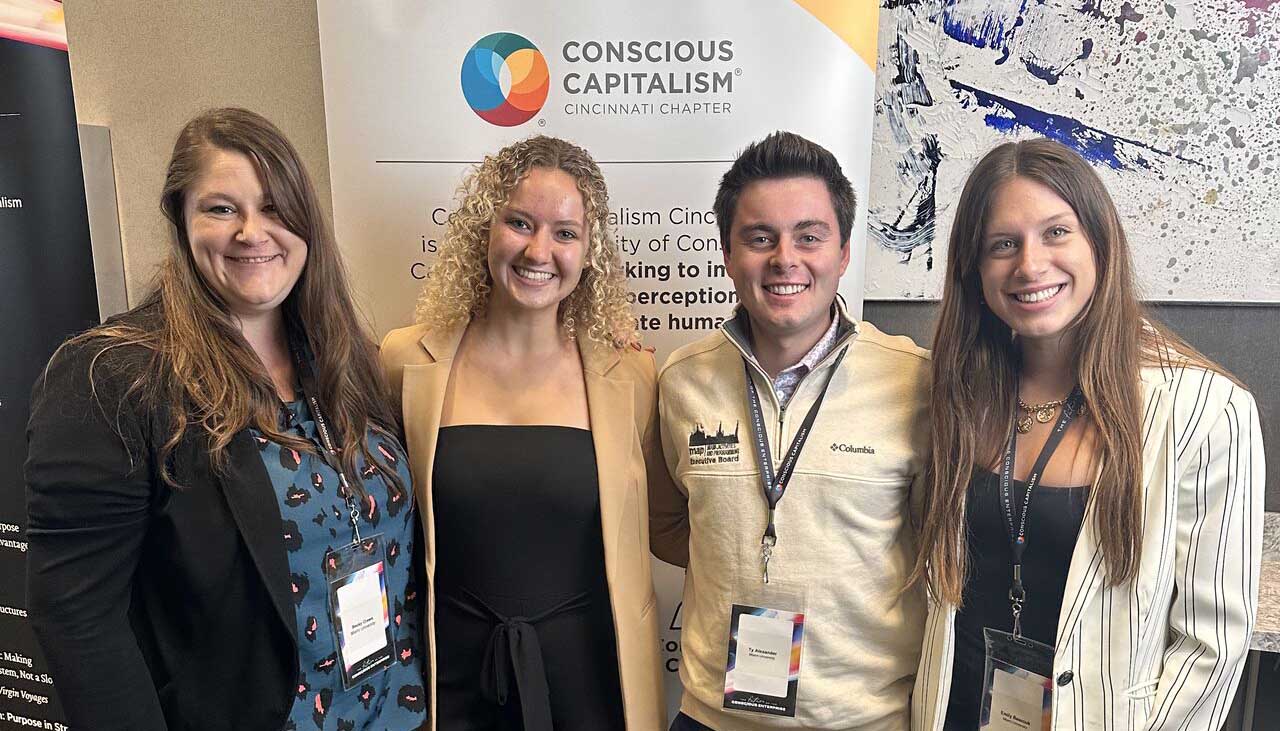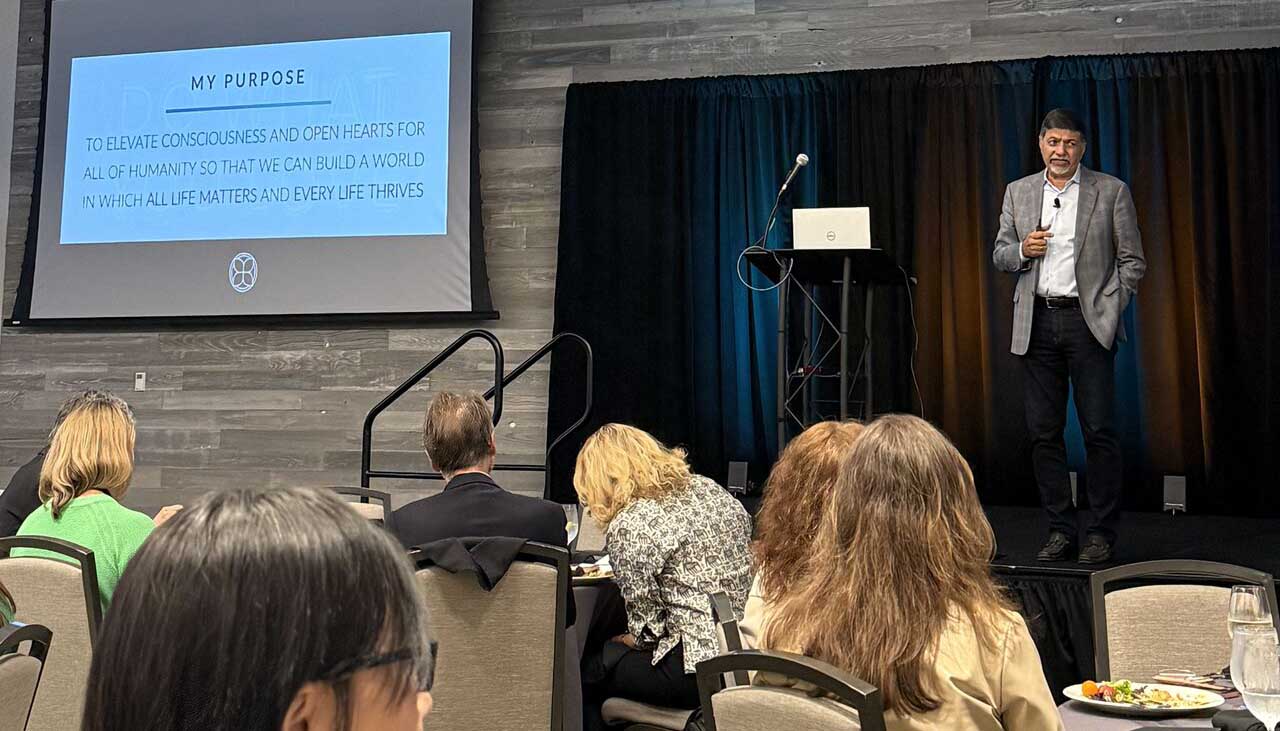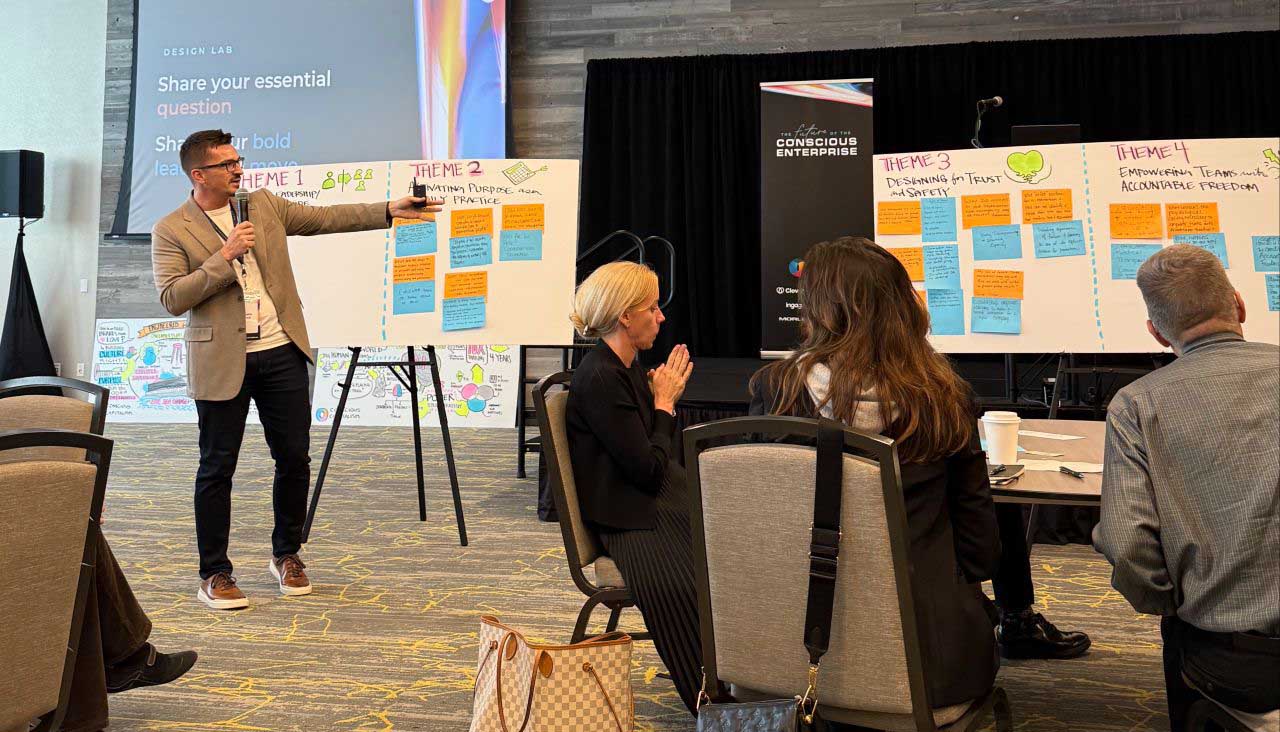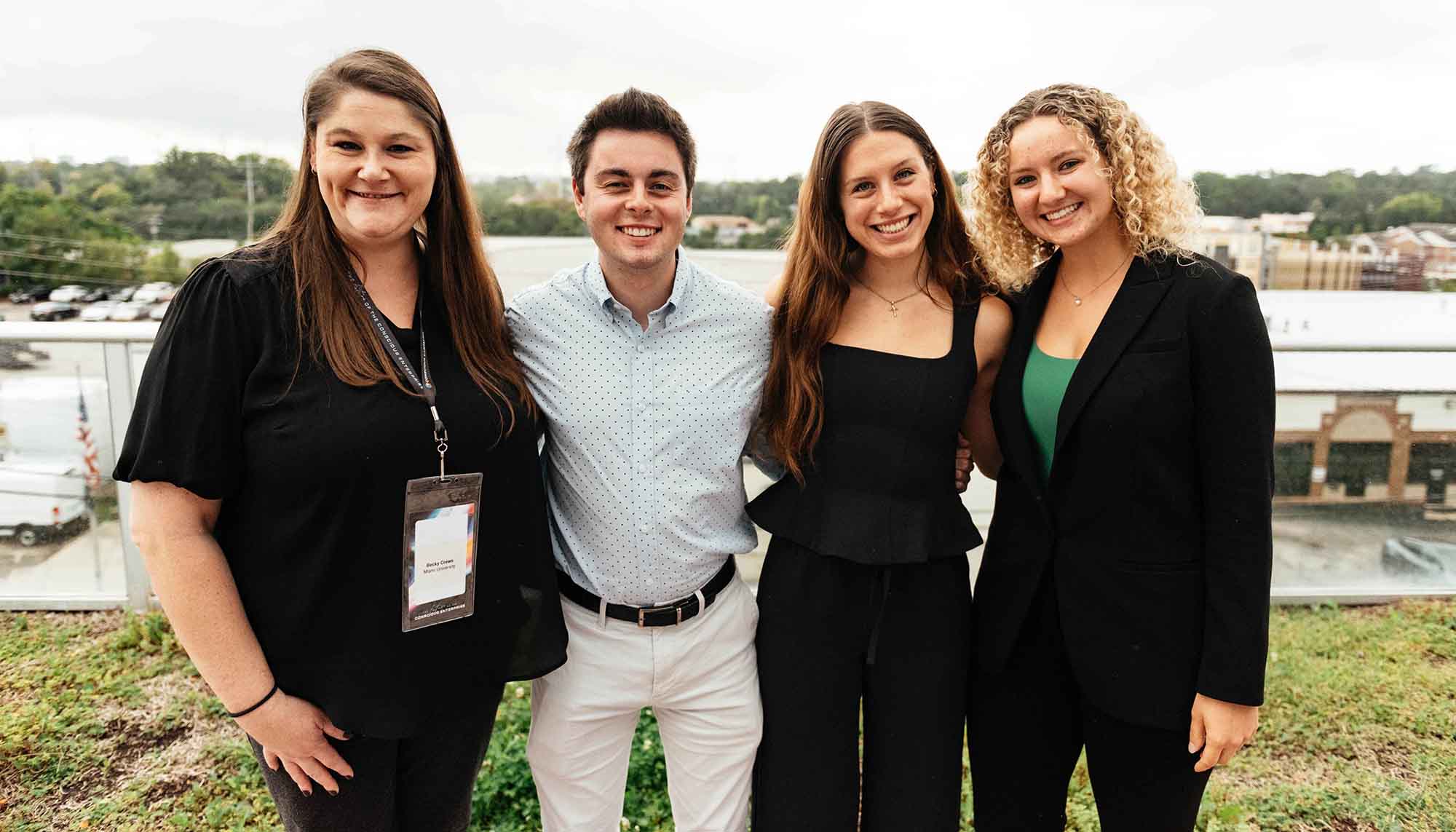Conference introduces FSB students to 'conscious capitalism' concept
Looking at capitalism through a bigger lens lets students see additional ways to perceive the business world

Conference introduces FSB students to 'conscious capitalism' concept
The Merriam-Webster dictionary defines capitalism as “an economic system characterized by private or corporate ownership of capital goods, by investments that are determined by private decision, and by prices, production, and the distribution of goods that are determined mainly by competition in a free market.”
Farmer School of Business students who took part in the “Future of the Conscious Enterprise” event last month were presented with the notion that there can be more to capitalism than just making money.
“A lot of capitalists look at how they succeed through their profit, but it's not just profit, it’s creating a good culture and good leadership,” senior Finance and Accountancy major Gina Cardinale said.
Cardinale, junior Human Capital Management and Leadership major Ty Alexander, and sophomore Marketing and Healthcare Sales major Emily Baszczuk, along with FSB professor Rebecca Crews, associate deans Drew Reffett and Xiaowen Huang, and assistant director of advising Cory Duchesneau, were at the two-day event hosted by Conscious Capitalism, Inc. and TiER1 Impact, joining students from the University of Cincinnati, University of Dayton, Xavier University, and Thomas More University. Students listened to speakers and participated in workshops and discussions.
“They were such great representatives of the Farmer School of Business, and they were really thoughtful. They contributed meaningfully, they were really engaged, and they really saw the benefit in thinking about business in this way, and it gave them an additional perspective to what we've been teaching them in the classroom,” Crews said.
“It was really refreshing to see such a large group of people come together and want to change business for good and want to foster an environment that's more purpose driven, that wants to work collectively,” Alexander said.
Cardinale said the conference concentrated on four tenants of conscious capitalism:
- Having a higher purpose
- Stakeholder orientation
- Conscious culture
- Conscious leadership
“Those are the tenants that they build conscious capitalism on, with leadership driving everything within an organization and how it works,” she said. “While profit fuels capitalism, and it may feel like the oxygen for a person in that if you don't have enough of it, you die. But if you think your life is only about breathing, then you're missing something.”
“Live your business through its purpose to the fullest extent instead of solely trying to gain as much profit as possible, because when your purpose is carried out, profit will follow – not the other way around,” Baszczuk said.
“I think if you go into the workforce and you're there just to get a paycheck, you'll never be happy. I think life is so much deeper than that,” Alexander said. “I feel if you don't have a ‘Why’ behind the work that you do, then I think you won't be happy. You will never achieve your happiness. You'll just keep chasing after that next milestone.”
Crews noted that now is a great time for the next generation of leaders to think differently. “I think our students are perfectly set to think of business differently than the way that it's been done before,” she said. “They're smart, they're excited, they just genuinely care about each other and the way business is going to be run. They are perfect people to be in this space where they can think about capitalism as a conscious, purposeful, human-centric ideology.”


